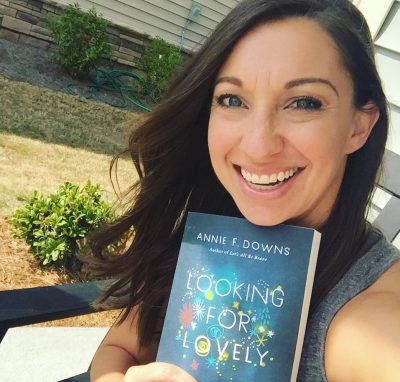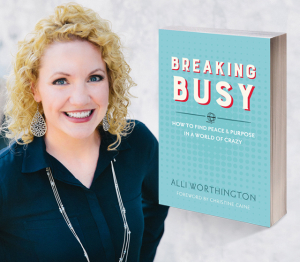 If you were to ask me when I became a Christian, I’m not sure that I could tell you. I have a vague memory of hearing the gospel and believing it when I was about 6 years old, but it wasn’t exactly an altar call experience.
If you were to ask me when I became a Christian, I’m not sure that I could tell you. I have a vague memory of hearing the gospel and believing it when I was about 6 years old, but it wasn’t exactly an altar call experience.
That memory aside, I can’t remember a time when I did not identify as Christian. I was raised in the faith. The gospel was woven into the fabric of my childhood, my family, and my life. I believed in God, loved and followed Jesus, and thought that made me a Christian.
It wasn’t until later that I found out my lack of a definitive conversion experience was a “problem.” In high school and college I encountered a different narrative of conversion, one that was dramatic, distinct, and scripted. It involved a specific date, a clear moment of crossing over from death to life. There was usually crying.
Like a lot of young people I know, this language produced in me enormous doubt about whether I was really saved. Throughout college I would find myself praying the Sinner’s Prayer again and again, just to be sure I was saved. Every time I had a powerful spiritual experience (or should I say a powerful emotional experience at a church or retreat), I reaffirmed my faith in Christ. Just to be sure.
Eventually I grew out of this phase and came to rest in the assurance of my faith in Christ, but my story is not unique. Many Christians wrestle with the same doubt and, consequently, many pray the Sinner’s Prayer over and over again. Wracked with anxiety over the status of their souls, some Christians never truly find peace in Christ.
Last year pastor David Platt criticized this approach to conversion, referring to the Sinner’s Prayer as a “superstitious prayer.” You can read my response here, but the short version is this: Platt is right. A dysfunctional understanding of conversion has permeated evangelical churches throughout our country, and the consequences are many.
Fortunately, my friend and former pastor, J.D. Greear, has written a book that speaks directly into this problem. Titled Stop Asking Jesus Into Your Heart, this book not only fleshes out questions of assurance–namely, how do you know if you’re saved–but examines why the Sinner’s Prayer formula is problematic.
In particular, J.D. identifies the two ways this approach to conversion has led people astray. For some, it produces constant anxiety and insecurity. This first category of people constantly wonder if they “really meant it” when they accepted Christ. These serial converters perpetually doubt the sincerity of their last conversion, and wind up praying for salvation again….and again and again and again.
The opposite pitfall of the Sinner’s Prayer formula is a false sense of assurance. Many individuals pray the prayer so that they can check “Going to Heaven” off their list. However their life never produces fruit, and they never really know Christ. They recite the Sinner’s Prayer like an incantation that guarantees their salvation, and then move on with their lives.
Throughout his book, J.D. works through these two mistaken views of conversion, as well as the many other misunderstandings that accompany evangelical conversions today. Along the way, he argues for a more holistic approach to understanding salvation, one that is more about a “posture” than a moment in the past.
This book is a great resource for anyone wrestling with their own assurance of salvation. The book is short and it’s a quick read, so it’s extremely accessible to anyone in need of answers. The first chapter is especially strong, but I also liked his chapter on repentance. In it he works through a lot of false notions of repentance that are common among Christians.
The only theological point that I wish had been given more attention is the role of the Holy Spirit in the process of conversion. It’s not that the Holy Spirit is absent from the book, but to my mind the Holy Spirit has a much more prominent role in the process of conversion. Part of our assurance comes from the fact that we do not choose God, but He chooses us. By means of the Spirit, God initiates and draws us to Himself, a mysterious yet wonderful work that produces great confidence in me.
Perhaps J.D. did not want to get mired down by the order of salvation, over which there is much debate. This book is not a theological tome, after all, but instead a simple resource for the average lay person. That said, this book is a much needed response to a long festering problem within the evangelical tradition. I hope that Christians struggling with questions of assurance will turn to this book for answers, but I also hope this book launches a much larger movement toward a holistic understanding of conversion. It is needed.







“Part of our assurance comes from the fact that we do not choose God, but He chooses us. By means of the Spirit, God initiates and draws us to Himself, a mysterious yet wonderful work that produces great confidence in me.”
Amen! That’s exactly right. The “conversion experience” isn’t what gives confidence. I did have a what you could call a major conversion experience. There was crying. 😉 That didn’t stop me from having doubts about whether or not I was actually saved. I struggled with questions of my own sincerity for a long time. It was only when I stopped analyzing my own actions/reactions/emotions and started looking at the Holy Spirit’s work in my life that I gained assurance.
Thanks for the review. I’ll have to get a copy (or two) of the book!
Nice review, Sharon, and a good corrective to a big problem. I worked in youth ministry a long time and constantly came up alongside kids who doubted their salvation. If I had a book like this back then, I might have been better prepared.
Now what I tell people is that it’s not about their sincerity and dedication; it’s about God’s dedication and faithfulness to us, and both of those are without limit both in strength and duration. As Hebrews 12 tells us, our focus should be on God. That’s how we grow in him, and it’s the right course for those who tend to fall into either of the two traps you mention.
Cheers,
Tim
Great post! I am just reading through Transforming Conversion by Gordon Smith – he discusses our faulty language surrounding conversion and salvation and how it comes out of our revivalist tradition. Then he reviews how conversion was perceived in the history of the church at large. I am really appreciating his balanced approach and highly recommend it – although it seems more like a textbook than a quick read. 😀
The is really interesting to me, as I was someone who prayed the ‘Sinner’s Prayer’ and cried- and I have an exact date and time of conversion. For me this is helpful as I did not grow up in a Christian home so it marks a clear time when my life changed, but I can imagine people who did grow up in church find it frustrating to be asked when exactly they committed themselves to God.
Louise, if you read J.D.’s book you’ll find that he doesn’t reject the Sinner’s Prayer altogether. He rightly points out that it can be a helpful way to affirm one’s faith in Christ and remember your date of conversion. In and of itself, that is not a bad thing, and can actually be a good thing! The danger is when too much weight is given to the Sinner’s Prayer–either believing that the words themselves are magical, or that you had to manifest some undefined requirement of sincerity for it to work. But in your case, it sounds like your conversion was a real and powerful moment in which you placed your faith in Christ and experienced salvation–J.D. would definitely not want to detract from that, and neither would I.
Thanks for this post Sharon. I haven’t had a chance to read J.D.’s book yet but I am excited to read it. I have a very similar story with my conversion and when people ask for my “testimony” I never really know what to say. It isn’t emotional or tear jerking in an earthly sense but I have to believe that my conversion is just as powerful in Christ’s eyes! Thanks for the encouragement!
Thanks for sharing your heart, Joy! And thanks for the review!
I noticed that my blog was getting several visitors from this site, and so I came to find the source (thank you for sharing my post, by the way)…
and I am SO glad I did!
What a joy to find a theological goldmine here, especially in this post. The only thing that makes me sad is that I didn’t have a book (or a blog) like this 15 years ago, when I was struggling heavily with the same things you apparently were.
The church got it so wrong in those days, and I suffered miserably as a result. It wasn’t until I was a college girl and my Mom gave me the book “Stepping Heavenward” that God began to reveal to me the error of my theology concerning salvation.
In my very favorite section of the book, Katherine says this to her pastor: “There is one more thing that troubles me,” I said. “Most persons know the exact moment when they begin real Christian lives. But I do not know of any such time in my history. This causes me many uneasy moments.”
And Dr. Cabot replies (and this changed my life): “You are wrong in thinking that most persons have this advantage over you. I believe that the children of Christian parents, who have been judiciously trained, rarely can point to any day or hour when they began to live this new life. The question is not, Do you remember, my child, when you entered into this world and how? It is simply this: Are you now alive and an inhabitant thereof?”
God has been so faithful to me since, and by His grace and through His Spirit, continues to cultivate a Biblical worldview in my life. I’m so grateful!
I look forward to keeping up with your work here. Again, thank you for sharing my post this week – I appreciate it so much!